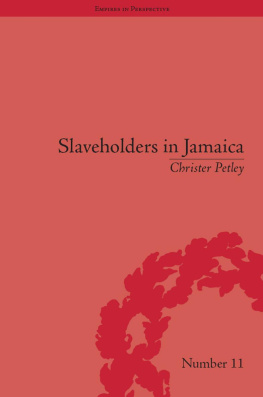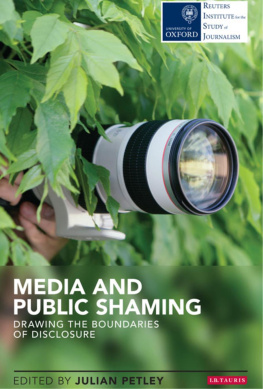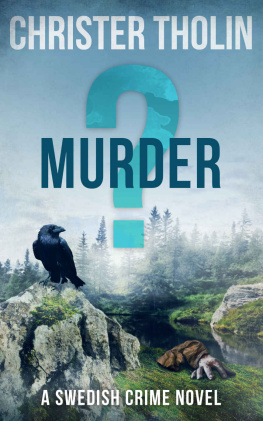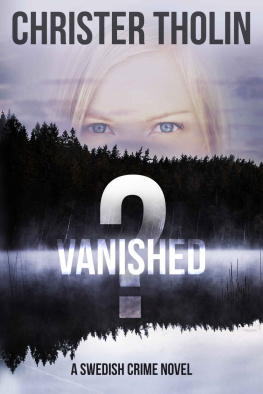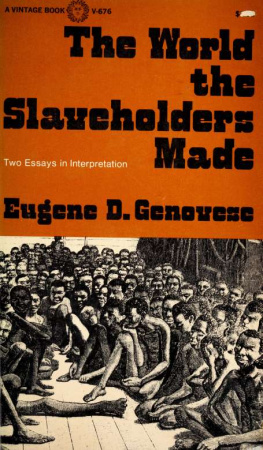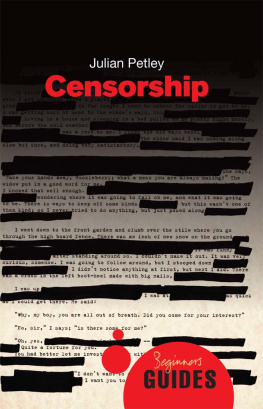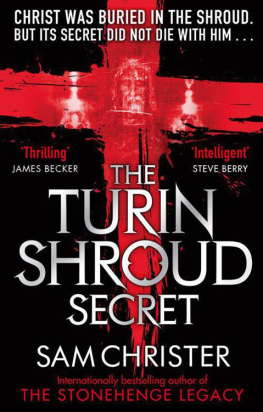SLAVEHOLDERS IN JAMAICA: COLONIAL SOCIETY AND CULTURE DURING THE ERA OF ABOLITION
EMPIRES IN PERSPECTIVE
Series Editors: | Tony Ballantyne Duncan Bell Francisco Bethencourt Caroline Elkins Durba Ghosh |
Advisory Editor: | Masaie Matsumura |
TITLES IN THIS SERIES
1 Between Empire and Revolution: A Life of Sidney Bunting, 18731936
Allison Drew
2 A Wider Patriotism: Alfred Milner and the British Empire
J. Lee Thompson
3 Missionary Education and Empire in Late Colonial India, 18601920
Hayden J. A. Bellenoit
4 Transoceanic Radical, William Duane: National Identity and Empire, 17601835
Nigel Little
5 Natural Science and the Origins of the British Empire
Sarah Irving
6 Empire of Political Thought: Indigenous Australians and the Language of Colonial Government
Bruce Buchan
7 The English Empire in America, 16021658: Beyond Jamestown
L. H. Roper
8 India in the French Imagination: Peripheral Voices, 17541815
Kate Marsh
9 British Narratives of Exploration: Case Studies on the Self and Other
Frederic Regard (ed.)
10 Law and Imperialism: Criminality and Constitution in Colonial India and Victorian England
Preeti Nijhar
FORTHCOMING TITLES
Australian Between Empires: The Life of Percy Spender
David Lowe
Royal Patronage, Power and Aesthetics in Princely India
Angma Dey Jhala
SLAVEHOLDERS IN JAMAICA: COLONIAL SOCIETY AND CULTURE DURING THE ERA OF ABOLITION
BY
Christer Petley
First published 2009 by Pickering & Chatto (Publishers) Limited
Published 2016 by Routledge
2 Park Square, Milton Park, Abingdon, Oxon OX14 4RN
711 Third Avenue, New York, NY 10017, USA
Routledge is an imprint of the Taylor & Francis Group, an informa business
Taylor & Francis 2009
Christer Petley 2009
All rights reserved, including those of translation into foreign languages. No part of this book may be reprinted or reproduced or utilised in any form or by any electronic, mechanical, or other means, now known or hereafter invented, including photocopying and recording, or in any information storage or retrieval system, without permission in writing from the publishers.
Notice:
Product or corporate names may be trademarks or registered tradem arks, and are used only for identification and explanation without intent t o infringe.
BRITISH LIBRARY CATALOGUING IN PUBLICATION DATA
Petley, Christer.
Slaveholders in Jamaica: colonial society and culture during the era of abolition. (Empires in perspective) 1. Slaveholders Jamaica History 18th century. 2. Slavery Jamaica History 18th century. 3. Jamaica Social conditions 18th century.
I. Title II. Series
306.36209729209033-dc22
ISBN-13: 978-1-85196-990-6 (hbk)
Typeset by Pickering & Chatto (Publishers) Limited
CONTENTS
While working on this project, I have incurred many debts of gratitude for help, advice, inspiration and support. The Economic and Social Research Council provided funding for the PhD project on which the book is based (Award Number: R42200034328). Dr Alexander Kent (FBCartS FRGS) of the Cartographic Unit at the University of Southampton provided the maps, and I am thankful to Pickering and Chatto for commissioning the book and for their patience and friendly support as the project has neared completion. Some of the material in has been developed from my previous articles: Legitimacy and Social Boundaries: Free People of Colour and the Social Order in Jamaican Slave Society, Social History, 30:4 (2005); Slavery, Emancipation and the Creole Worldview of Jamaican Colonists, 18001834, Slavery and Abolition, 26:1 (2005); A Certain Consciousness of Equality: Slaveholding, Wealth and White Solidarity in Early Nineteenth-Century Jamaica, Wadabagei, 9:3 (2006).
This book would not have been possible without the helpful, knowledgeable and efficient assistance of the librarians and archivists who assisted me in my research. I am grateful to staff at the following places: the Jamaica Archives, the Jamaica Island Record Office, the National Library of Jamaica, the British Library, and the National Archives at Kew. I am also grateful to staff at the libraries of the University of the West Indies, Mona; the University of Warwick Library; and Cambridge University Library.
I would like to thank Makesha and Kelly Evans and the Kingston and Montego Bay branches of the Evans family, whose friendship ensured that I had an extremely enjoyable six months in the Caribbean. David Dodman also helped to ensure that dull moments were extremely rare during that period, and life in Jamaica would certainly not have been the same happy experience without the warm hospitality that I received from the folks along Hopedale Avenue or the regular company of my friends and colleagues, James Robertson, Jonathan Dalby and Jacob Moore.
As a postgraduate student at the University of Warwick, I benefited immeasurably from the advice and encouragement of my supervisor, Gad Heuman, and from the assistance of Tim Lockley. I remain deeply indebted to Gad for his continued interest in my work and for his ongoing support. While I began my life as a historian at Warwick, I counted on the inspiration and help of many other friends and colleagues and am particularly grateful to Ros Lucas, James Campbell, Margot Finn, Cecily Jones and Carolyn Steedman.
Since 2004, I have worked at three different universities. At the University of Newcastle upon Tyne, I had the opportunity to begin teaching courses on slavery and emancipation and received valuable help and support from Diana Paton, Susanna Phillippo and from other colleagues. My three years at Leeds Metropolitan University, in an interdisciplinary School of Cultural Studies, was a happy and healthy experience in lots of ways, thanks in large part to the many friends I made there, and to Gordon Johnston, Claire Chambers, Rachel Farebrother, Rachel Rich, Susan Watkins, Pieter Bekker and Michael Bailey in particular. Since moving to Southampton I have benefited from the unstinting collegiality of people at the School of Humanities. John Oldfield and Matt Kelly in particular have helped me to enjoy and make the most of my move to the south coast, and I am extremely grateful to Matt for reading and commenting on parts of the manuscript during the final fraught weeks before its completion.
Countless questions, comments and conversations have helped me to develop this book, and I am grateful for the opportunities I have had to speak about my work at conferences and seminars in the US and in the UK. The 2002 Harvard Seminar on the History of the Atlantic World and the annual conferences of the UK Society for Caribbean Studies proved particularly rich sources of intellectual stimulation. Special thanks must also go to Catherine Hall and Rebecca Earle who examined my PhD thesis and offered some very constructive criticisms. Trevor Burnard and Dave Lambert have each provided me with valuable insights and moments of inspiration over the last few years, and I am very grateful to Dave for his comments on parts of the manuscript. All of these academic institutions, groups and colleagues have helped to make this book possible, but full responsibility for it rests, of course, with me.


